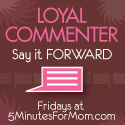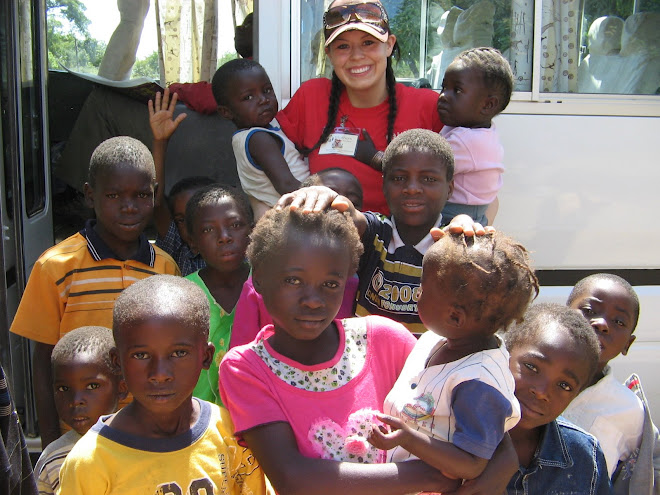

My favorite thing about doing author interviews is getting to know these wonderful people who are so gifted and talented. I have known Cheri for a number of years and love and admire her a great deal. She is one person who manages to get through difficult challenges with faith and a sense of humor. She is a great example to me and such a wonderful author.
Cheri J. Crane was born in Idaho Falls, Idaho, and she spent a goodly share of her childhood living in several different Idaho towns, and one year in Utah. Her father was a pharmacist with a major drugstore chain and he was transferred a bit as he moved up the corporate ladder. By the time Cheri was in high school, he had been offered a chance to manage a small drugstore in Ashton, Idaho. Cheri considers this to be her hometown since that is where she graduated from high school.
Cheri went on to what was then called, Ricks College, where she graduated with an Associate degree in English. That summer she met a cute returned missionary named Kennon Crane and they were married a few months later in the Logan Temple. They are the proud parents of three sons. All three boys served LDS missions in varying locations throughout the world. One of those sons is now married and he and his wife have given Cheri a cute little granddaughter to spoil.
Cheri loves working with the youth, and she is currently serving for the second time in her ward’s YW organization. She is their fearless leader, doing her best to help these girls keep their sense of humor intact.
Cheri is an LDS author and she has penned the following books: “Kate’s Turn,” “The Fine Print,” “Kate’s Return,” “Forever Kate,” “Following Kate,” “Sabrina & Kate,” “The Girls Next Door,” “The Long Road Home,” and “Moment of Truth.” She is currently working on a new manuscript that will be discussed below.
Here is my interview with Cheri . . .
M.B.: When did you first know you wanted to be an author?
Cheri: Unlike most authors, I had no plans to become a writer. I have always loved to read, and in high school, I enjoyed honors English courses. While attending college, I majored in English, with plans to teach high school English, French, and drama. I married a young man from Bear Lake, Idaho halfway through my college education, and all plans changed.
We had been married for about a year and a half when my father took his own life. He had been ill for quite some time, suffering from a rare, debilitating liver disease. It was a devastating loss and one of the ways I coped was to write out everything I was feeling. During the nights when I couldn’t sleep, I would grab an empty notebook and fill it with painful memories. Then I would shred those pages, experiencing a sense of healing.
After a while, I began writing a story about a young woman who was trying to come to terms with her father’s untimely death. It was in essence, my story, but I changed some of the details to make it easier to approach. When it was finished, I experienced such a feeling of peace. My husband read that first manuscript and encouraged me to send it in for publication. That is when I first started thinking about becoming a published author.
M.B.: What was the pathway like for you to get your first book published?
Cheri: It wasn’t easy. By the time I began sending off manuscripts, I was the mother of two young sons. They were thirteen months apart and at times, worse than twins. Both were in diapers, but one was old enough to get into everything while I was tending to the needs of the younger son. True character building moments. In between all of that, I continued to write stories. I found that I felt better on the days that I wrote. Eight years and five manuscripts later, my first book was published by Covenant Communications in 1994.
M.B.: Were you ever discouraged along the way? If so, how did you deal with it?
Cheri: There were times when I was ready to throw my hands in the air and walk away. I would receive a rejection letter and it would ruin my day. By the time I received the letter, I was already halfway finished with the next manuscript, and that is what kept me going. I would pout for a couple of days, then decide to shrug it off and keep trying. It was good that it always seemed to take six months or more to hear back from the publishing companies. It gave me plenty of time to start the next story.
M.B.: What is your writing schedule like?
Cheri: When my sons were young, the only time available to write was either early in the morning, or late at night. As they grew older and started school, I found time to write during the day as well. I still find that I do my best writing in the early morning hours. Not only is the house quiet, the words flow better during that time of day.
M.B.: Where do your ideas come from? How do you know the idea is
good enough to write a book about it?
Cheri: Life. I draw on my own experiences, and the things that I observe. We travel quite a bit and I’m always taking notes, pictures, and gathering maps. I never know when I’ll use those places as settings in my books.
Sometimes a news story will trigger an idea. Several years ago I read a short article about the difficulties of women in prison who are also mothers. That article inspired me to create a character for one of my books.
I do a lot of people watching. Some of my characters are shaped from the people that I see. Recently, I created a villainous character that is loosely based on a woman I observed in action one day.
I also tend to write about topics that either interest me, or cause concern. Most of my earlier books were written for teens, and each one tackled difficult trials that some young people face, like teen alcoholism, pregnancy, and eating disorders. Currently I’m working on a mystery that I’m hoping will appeal to all ages.
As for wondering if an idea is good enough to inspire a book—I figure if the storyline flows, that’s a good sign. When it’s finished, I also run it past a couple of women who proof for me. If they enjoy reading the manuscript, that tells me quite a bit since both women are very honest with me.
M.B.: What words of advice do you have for other writers who desire to
have their manuscripts become books in print?
Cheri: Never give up. One of my sisters finished writing a book about 3 years ago. She received a rejection letter from the first publishing company she selected. I encouraged her to try again. It will be released into stores in a few months.
Getting a book published is often a matter of timing: touching base with the right publishing company at the right time, with the right idea.
M.B.: What is your process of brainstorming a story? Do you just sit
down and write, waiting to see what happens next? Or do you outline
first?
Cheri: Once again, I’m an odd duck. An idea will come to mind and I will begin writing the story. I very rarely write out an outline. Depending on the book, I will often put together a character reference page. This lists all of the characters in the book complete with physical descriptions, personality traits, etc.
For my first published book, “Kate’s Turn,” I drew out a pedigree chart to make sure I was accurate with dates.
I’m big on research. Even though I write works of fiction, I want the details to be as accurate as possible. I will spend weeks, and sometimes months, doing research for each individual book.
Sometimes field trips are in order. For my book, “The Girls Next Door,” I traveled down to an eating disorder clinic in Orem, Utah. I was taken on a special tour, and interviewed counselors and staff members to make sure I had all of the facts right for my storyline.
M.B.: Do you ever experience a snag in a story, a form of writer's
block? If so, how do you deal with it?
Cheri: Yep. I think this happens to most writers. The thing that works for me is time. I will shift gears and work on another manuscript, since I usually have about 2-3 that I tinker with at any given time. If one storyline bogs down, I’ll leave it alone for a while. Then I’ll come back in with fresh eyes and tackle it again.
M.B.: Do you need absolute quiet to write? Do you listen to music when
you are writing?
Cheri: Both. I like writing in the early morning hours because the house is quiet. But there are also times when listening to classical music helps with the creative process. I grew up in a musical family, and I often find music to be inspiring.
M.B.: What kinds of inspiration do you use during your story creation periods?
Cheri: Pictures of the areas I’m using in the storyline. Photography is a hobby of mine and I’m always dragging cameras around. Since I now use digital cameras, I keep picture files on my laptop and desktop computers. Studying these pictures will often trigger entire scenes.
As I already mentioned, certain kinds of music will set the desired mood for a particular scene. While writing about the New Orleans area in a recent manuscript, I listened to a jazz CD I had purchased in New Orleans’ French Market.
M.B.: Who has made the greatest difference for you as a writer?
Cheri: Family and friends. They encouraged me to send in those first manuscripts. They are still the ones who continue to encourage and support me in this lucrative endeavor.
M.B.: Do you use a critique group during the writing process? Why or why not?
Cheri: Nope. I did just join a local writer’s guild, so that may change. As I mentioned earlier, I do pick on 2-3 friends of mine when the manuscript is nearly finished. They will read through and circle anything that stands out, whether it’s a typo, an awkward sentence, or a scene that for them, doesn’t work. They are very honest with me, and I appreciate their feedback. It always makes for a better book.
M.B.: Which of your books is your favorite, and why?
Cheri: “The Fine Print,” will always be a favorite. It touches on a subject close to my heart—diabetes. I’m a Type 1 diabetic and it is amazing how many negative messages there are in the world for those of us blessed with this condition. In “The Fine Print,” I tried to use humor to show that it is possible to lead a semi-normal life despite this challenge.
M.B.: Any final words you would like to share
Cheri: I’ve taken a break from the writing world the past four years. We’ve dealt with some difficult challenges in our family, including the suicide death of my husband’s oldest brother. But I’ve been working on a new manuscript the past few months, one I’m hoping will appeal to readers of all ages. I’ve always enjoyed mysteries, and I decided to create one of my own. I’m calling this novel, “Blackout,” and it shares the story of a young woman who has lost her memory. She regains consciousness at the foot of a small mountain, unable to recall the details of her life. Injured, she struggles to survive in the wilderness, drawing on inner strength to persevere.
M.B.: Where can our readers go to find your books and order them?
Cheri: Most of my books are out of print, but they are still available on this website: http://www.abebooks.com/ Simply type in my name in the author box and scroll down to find the book that you want. These books are used, but in good shape, and available at a reasonable price. You can also find my books on this link at Amazon:
http://www.amazon.com/s/ref=nb_ss?url=search-alias%3Dstripbooks&field-keywords=Cheri+Crane&x=19&y=19
My website is: http://www.chericrane.com/ and my blogsite is found here: http://www.crane-ium.blogspot.com/



























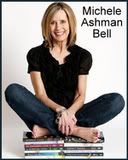
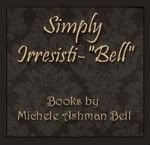





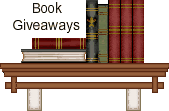
















































-page-001.jpg)












